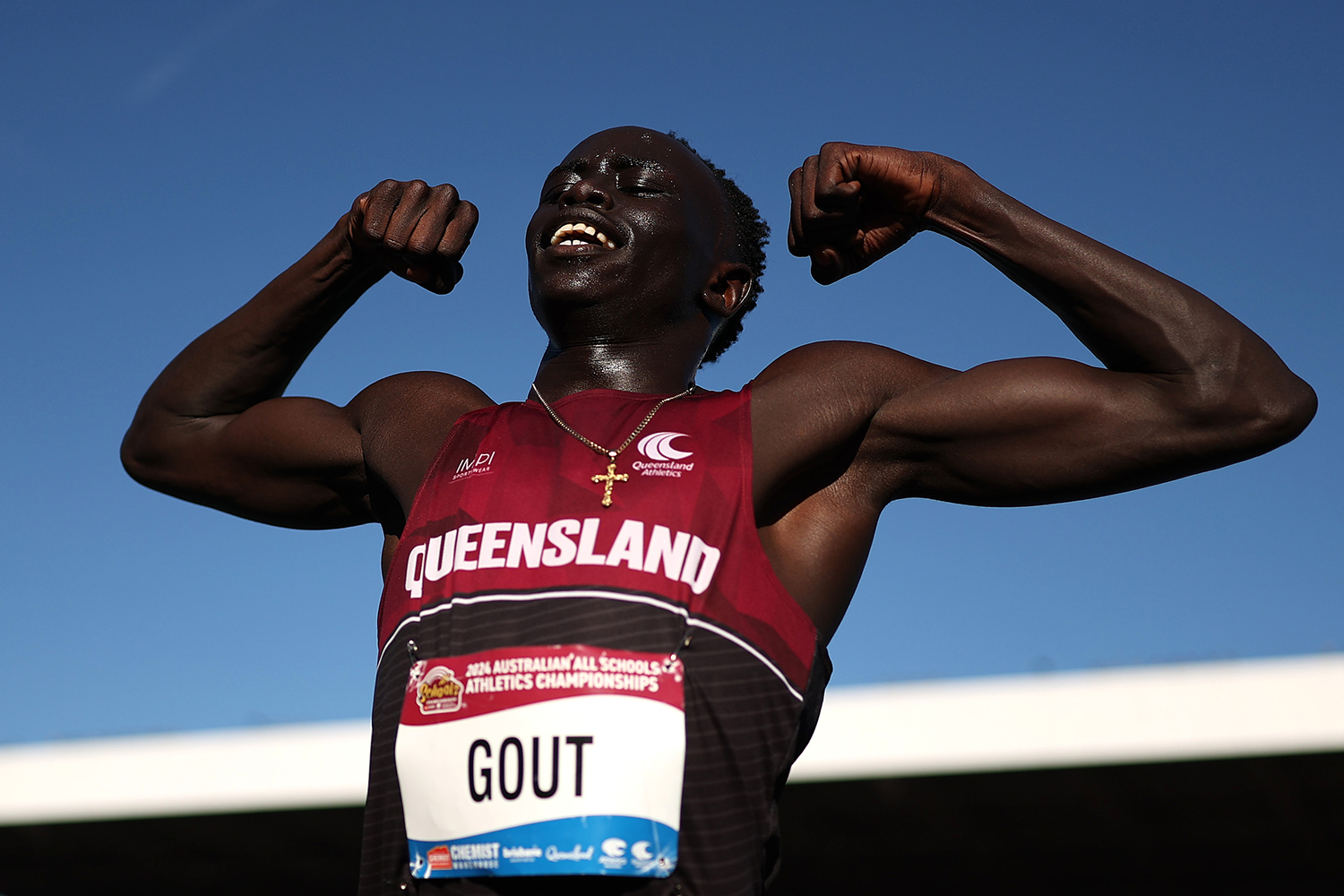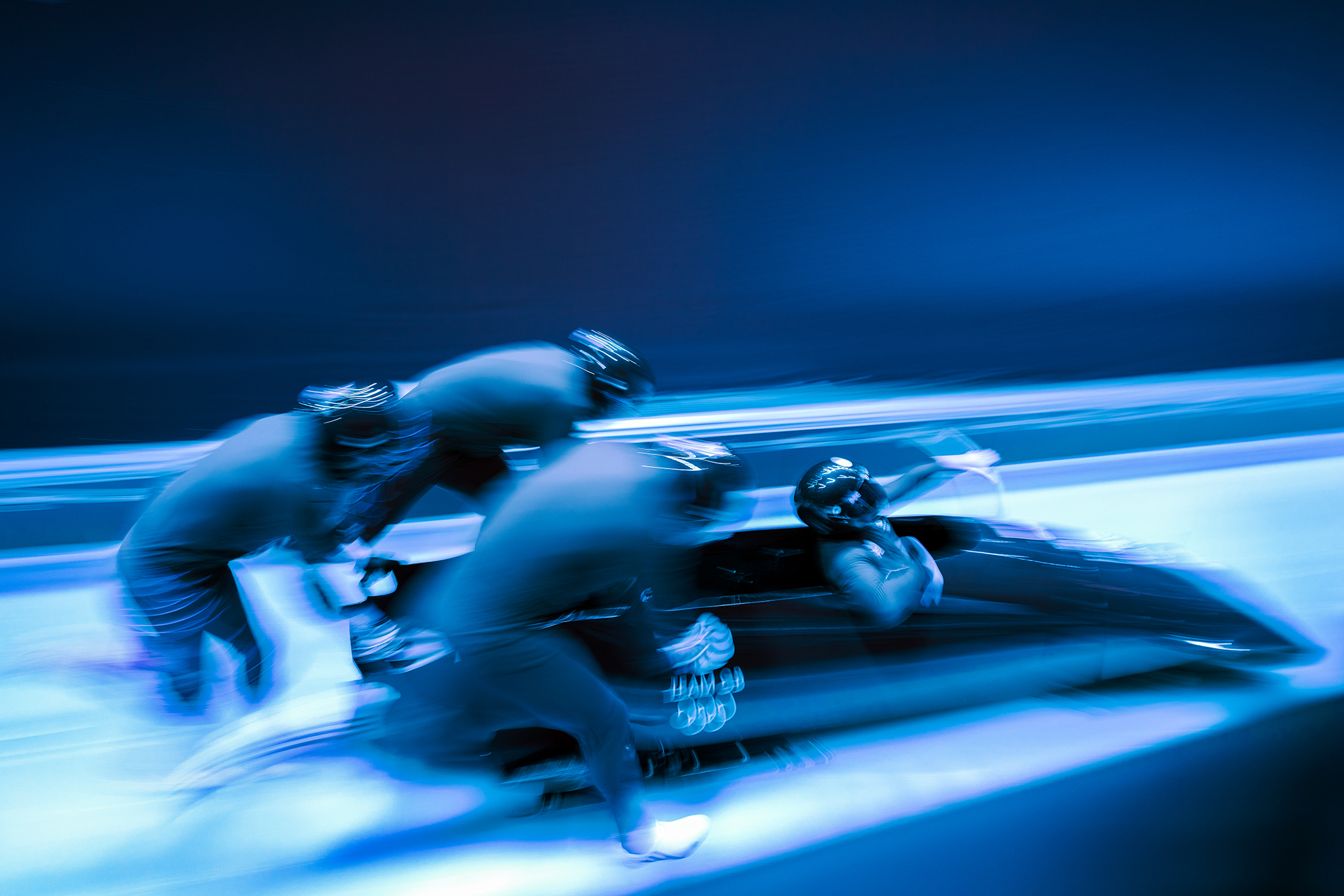Usually sober observers of track and field have been trying to recalibrate their metric for superlatives recently. Though every performance has to be higher, faster, longer, a 16-year-schoolboy from Dallas, Texas has injected a welcome boost of rocket fuel into a sport that struggles to cut through to the mainstream.
Cooper Lutkenhaus probably doesn’t fully appreciate it, but he may be about to take athletics back to an age when everyone knew who Carl Lewis or Seb Coe was.
At the USA Track Championships earlier this month Lutkenhaus ran 1min 42.27sec, the 18th fastest 800m of all time. He beat two adult world champions and broke the previous world best not just for 16-year-olds but 17- and 18-year-olds as well.
“Quite unbelievable,” said Jack Buckner, 1986 European 5,000m champion, former training partner of Coe and current chief executive of UK Athletics. “If you said pick one performance from this season, that [Lutkenhaus] would be it. I’ve seen Seb and everything he did… to do that at 16 is quite extraordinary.”
Coe himself also deemed it “extraordinary”. Coe ran 1:41.73 when he broke the world record in 1981. That lasted 16 years, and he was 24 when he achieved it. Now president of World Athletics and thus responsible for the sport’s future health, Lord Coe offers a natural note of caution on Lutkenhaus: “To achieve a time of 1:42.27 is an extraordinary feat for any athlete – regardless of their age. I hope his focus is still on the enjoyment he takes out of the sport.”
Lutkenhaus is track’s equivalent of Lamine Yamal, just minus about £20m in the bank, as Texas rules don’t allow high schoolers to earn money from sport. Yet Coe also knows what an all-American hero might do for the sport, adding: “I look forward to seeing him in action in Tokyo next month at our World Championships as well as at the World Under-20s on [his] home soil in Eugene next year.”
And while Lutkenhaus is very much the outstanding personality of the track summer, he is not alone among Gen Z revitalising the sport.
Australian Gout Gout, now 17, ran 20.02 in his European 200m debut in Czech Republic in June, faster than Bolt at the same age, and he has smashed Peter Norman’s national record. Sorato Shimizu, 16, ran 10.0 at Japan’s High School Championships last month, breaking the Under-17 and Under-18 world records. All three of these teen stars have capacity to reboot a sport that has struggled under the weight of doping bans and the controversy surrounding Athletes with Differences of Sex Development since the retirement of Usain Bolt in 2017, its last global superstar.
With Shimizu poised to make the team for next month’s Tokyo World Championships, domestic Japanese hype is ablaze. The 2028 Olympics are in Los Angeles, by which time Lutkenhaus will be the grand old age of 19. And the 2034 Olympics are in Brisbane Australia, Gout’s home state. If you had wanted to engineer a trio of wunderkinder in key markets, World Athletics couldn’t have asked for a better fit. And given that former Olympic champion and BBC pundit Michael Johnson’s attempt to launch his grandiose Grand Slam Track Series in the USA has flopped embarrassingly after a handful of events, with athletes left unpaid, the emergence of the next generation of superstars couldn’t be more timely.
Caution is natural. Last year’s Gen Z phenom was St Albans’ A Level student Phoebe Gill, now 18, who ran 1:57.86 for 800m, the ninth fastest UK time ever. But young hearts and especially young growing bodies don’t always run free and she has missed this season with a stress fracture. This summer Exeter Harriers’ Innes FitzGerald, 19, won the 3,000m and 5,000m double at the European Under-20 championships and has broken Zola Budd’s 40-year-old continental age-group record. A climate change activist, she has personality as well as talent and should be in Tokyo.
Newsletters
Choose the newsletters you want to receive
View more
For information about how The Observer protects your data, read our Privacy Policy
“This sport is about the event and the heroes,” said Buckner. “You need the Keely Hodgkinsons. Mondo Duplantis in Paris was extraordinary.” Sweden’s pole vaulter Duplantis is the sport’s current biggest name, a genuine sensation, if not in Bolt’s league, though he captivated a famously sniffy Parisian capacity crowd with his extraordinary 6.25m world record.
Anticipation for Tokyo is now not simply focused on the likes of Duplantis and Hodgkinson but Lutkenhaus, Gout and Shimizu, a heavy burden for teens to carry. And the revival isn’t just a global phenomenon. In the UK, youth middle distance running is enjoying a boom not seen since the Coe-Cram-Ovett era of the 1980s and while no one is close to Lutkenhaus yet, many of the teen challengers are British. From record financial losses in 2023, UK Athletics is slowly rebuilding, its London Diamond League was 60,000 sell-out for the second consecutive year, and UKA has been reportedly overwhelmed by ticket sales for next summer’s European Athletics Championships in Birmingham.
“I feel track and field is on the up around the world,” said Buckner, who experienced the last athletics boom in the 1980s. “Our Diamond League was amazing. Seb Coe has done a cracking job at World Athletics. We just need to build stronger foundations, because last time when it disappeared it went very quickly.”
Photograph by Cameron Spencer/Getty Images
•
This article was amended on 24 August 2025. An earlier version stated that Sebastian Coe's 800m world record had lasted 31 years, when it had in fact lasted 16.


